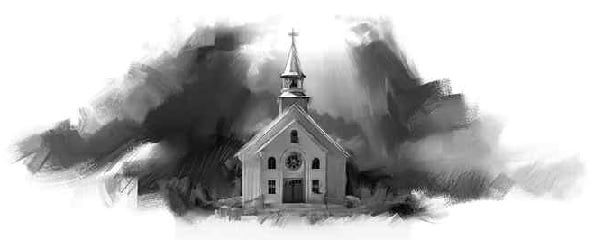Sabbath: The Gospel and the Church
Read for This Week’s Study: Gal. 6:1-10, Matt. 18:15-17, 1 Cor. 10:12, Rom. 15:1, John 13:34, Luke 22:3.
Memory Text: “So then, as we have opportunity, let us do good to everyone, and especially to those who are of the household of faith” (Galatians 6:10, ESV).
Some farmers decided to save the biggest vegetables for themselves and to plant the smaller ones as seed. After a few disappointing harvests, they discovered that nature had reduced their crops to the size of marbles. Through this disaster, those farmers learned an important law of life.
“They could not have the best things of life for themselves and use the leftovers for seed. The law of life decreed that the harvest would reflect the planting.
“In another sense, planting small [vegetables] is still common practice. We take the big things of life for ourselves and plant the leftovers. We expect that by some crazy twist of spiritual laws, our selfishness will be rewarded with unselfishness.” — International Student Fellowship Newsletter, March 2007.
Paul applies this principle in Galatians 6:1-10. Instead of members “bit[ing] and devour[ing] one another” (Gal. 5:15), the church should be a place where the Spirit leads us to put others before ourselves. Understanding that we are saved by grace should make us humble and more patient and compassionate in how we treat others.


They talk about the law of life here, what do you understand the law of life to be? Giving rather than taking which is other centered love. This law of life here, which government decided to legislate that?
What happens when you break such a law? When the farmers kept big stuff and planted the little stuff, acting selfishly, breaking the law of love.
Does the government have to have a court investigation, prosecution, sentencing and infliction of punishment? Are there any lessons here regarding God’s law and sin?
Would any harm be done if we taught that a farmer who planted small potatoes would incur the wrath of God and be punished by having a poor harvest? Is there a spiritual lesson here, would we do harm that if we teach that if we break God’s law God will punish us for breaking His law.
Does that ever happen in Christianity?
Do not be deceived: God cannot be mocked. A man reaps what he sows. 8 The one who sows to please his sinful nature, from that nature will reap destruction; the one who sows to please the Spirit, from the Spirit will reap eternal life. 9 Let us not become weary in doing good, for at the proper time we will reap a harvest if we do not give up. 10 Therefore, as we have opportunity, let us do good to all people, especially to those who belong to the family of believers. Galatians 6:7-10
Do you hear in the scripture the same lesson that was described in planting the potatoes? You plant the small potatoes you get small stuff you plant selfishness you will get a selfish heart. You plant selfishness with a selfish heart from that heart you will reap destruction.
It’s a sowing reaping law being described here. So is that kind of law an enacted legislated imposed law or is that a natural design in way God built things to run?
To answer your question, “they talk about the law of life”. That is an illlistration of the law of Christ. Galations 6:2. From the context, the law of Christ is love. “And this is His commandment: that we should believe on the name of His Son Jesus Christ and love one another, as He gave us commandment”. 1John 3:23. Thus we are using the best seed, love as Christ would love.
I love the posting above, but I am not a farmer. So I can only apply this by what a city boy understands. Being a Christian, I work hard to try and do well at work. To treat others with respect and dignity. But my garden is the work I do with young people. I believe, when I work with young people I plant seeds. According to the scriptures, as I understand it, there are those who are successful based on what my Lord gave me and might pay more attention to them rather then those who were not so successful. I believe by helping those who are less that would be the right thing to do. But what do I do with those that are successful? Replant them. Now that may sound as if they are less, but no. If we take those who are successful and guide them to start their own, then their seeds will produce others.
I guess a farm works in the same way. The better you plant the more it grown.
Was not to sure I got what the writers was saying, nor how to apply his point to my life, not until I read the last two sentences of Stephen’s comments. Blessings!!!!